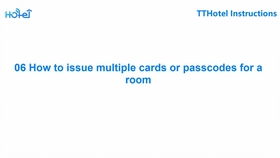How to Check Cashing Places Make Money
Checking cashing places have become an essential service for many individuals and businesses. These establishments provide a convenient way to access cash, often at a fee. If you’re considering opening a checking cashing business or simply want to understand how these places make money, here’s a detailed look at the various aspects involved.
Understanding the Service

Before diving into the financial aspects, it’s important to understand what checking cashing places do. These businesses allow customers to cash checks, often for a fee. This service is particularly useful for those who don’t have access to traditional banking services or need immediate cash.
Revenue Streams

There are several ways that checking cashing places generate revenue:
| Revenue Stream | Description |
|---|---|
| Cash Check Fees | Customers are charged a fee for cashing checks, which can vary depending on the amount and the type of check. |
| ATM Services | Many checking cashing places offer ATM services, which can come with their own fees. |
| Money Orders and Wire Transfers | Customers can purchase money orders and send wire transfers, which are subject to fees. |
| Debit Card Services | Some checking cashing places offer debit card services, which can include monthly fees and transaction fees. |
These fees can vary widely, with some places charging as little as $1 for a small check and up to $10 or more for larger amounts. It’s important to note that these fees are often higher for non-bank customers.
Operational Costs

While checking cashing places generate revenue through fees, they also have significant operational costs:
-
Employee Salaries
-
Security Measures
-
Office Space and Utilities
-
Technology and Software
-
Regulatory Compliance
These costs can vary depending on the size and location of the business. For example, a larger, more prominent location in a busy area may have higher rent and utilities, but it could also attract more customers.
Customer Base
The success of a checking cashing place often hinges on its customer base. These businesses typically serve a diverse group of individuals, including:
-
Unbanked or Underbanked Individuals
-
Small Businesses
-
People in Need of Immediate Cash
-
Immigrants and Other Non-Traditional Customers
Understanding the needs and preferences of this customer base is crucial for attracting and retaining customers.
Marketing and Branding
Effective marketing and branding can significantly impact the success of a checking cashing place. Some strategies include:
-
Community Engagement
-
Online Advertising
-
Partnerships with Local Businesses
-
Referral Programs
By building a strong brand and establishing a presence in the community, checking cashing places can attract a steady stream of customers.
Regulatory Compliance
Operating a checking cashing place requires compliance with various regulations, including anti-money laundering (AML) and Know Your Customer (KYC) requirements. Ensuring compliance can be costly and time-consuming but is essential for the long-term success of the business.
Conclusion
Checking cashing places can be a profitable business, but it’s important to understand the various aspects involved. By focusing on customer needs, managing operational costs, and staying compliant with regulations, you can increase your chances of success in this competitive industry.


